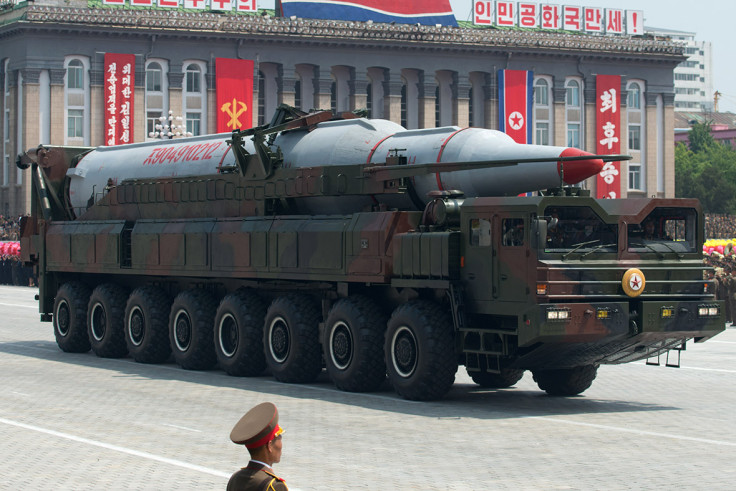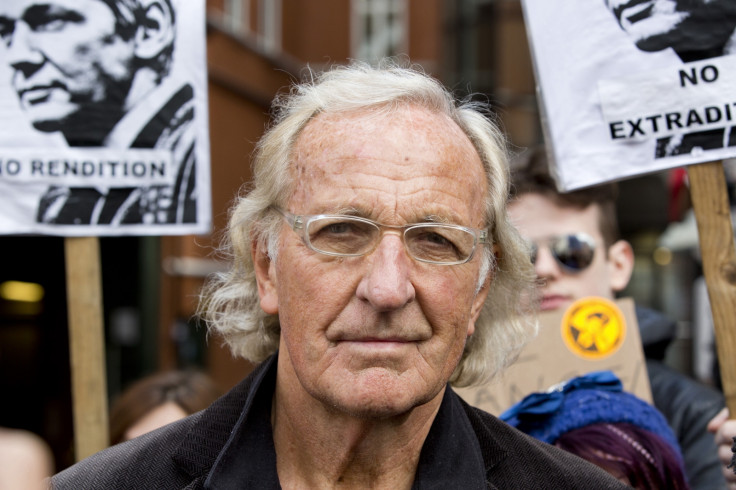US at war with North Korea? Trump rhetoric is nothing new but raises Armageddon stakes
John Pilger tells IBTimes UK that system which created Trump must be opposed.
Most US presidents have resisted the lure of waging a war with the pariah state of North Korea, but under Donald Trump that threat is becoming an ever-likelier possibility.
The business mogul-turned-president is known for his vitriolic rhetoric and trigger-happy Twitter assaults, but will North Korean provocations be enough to set him off to authorise an attack?
The early signs are not promising. Less than two months into his administration, Trump's Secretary of State Rex Tillerson declared that a pre-emptive strike is "an option on the table" and that any threat to South Korea or US troops would be met with "an appropriate response".
Such language is not new. In 2014, while on a visit to South Korea, then president Barack Obama proclaimed a similar statement of intent.
"We don't use our military might to impose these things on others, but we will not hesitate to use our military might to defend our allies and our way of life," he said at the Yongsan Garrison military base, the HQ of the US military in South Korea.
But Trump has demonstrated a much more cavalier attitude than the man who came before him.
Long-time war journalist and foreign policy commentator John Pilger told IBTimes UK: "Trump's twin distinctions are that he is a cartoon version of his predecessors and slightly unpredictable ... and that the US has no international language these days other than that of warmongering."
A pre-emptive strike brings with it the very likely escalation into all-out war, observers have warned.
Max Fisher, of the New York Times, writes: "North Korea knows it would probably lose any war. Should one occur, its plans call for a full-scale, last-ditch retaliation to stop the Americans in their tracks.
"This strategy, borne of desperation, creates a risk that has long chastened American war planners: that North Korea would perceive even a limited strike as the start of a war and respond with its full arsenal."
He adds: "A full war, entered deliberately or accidentally, would risk terrible costs."

That war would not only involve Kim Jong-un's rogue state but would undoubtedly draw in China because it would lose the physical buffer between itself and US troops, a risk it would not be willing to take.
Such an outcome would inevitably be a precursor for a third world war.
For Pilger however, Trump would not be the root cause of such a disaster – that would be the product of an American empire hellbent on hegemony and world domination, he said.
The threat that Trump poses is no different than that of Obama's administration, added Pilger.
"Obama's record is clear," Pilger said. "He was one of the more violent and rapacious presidents in the modern era.
"He sustained seven wars – a record. He built more nuclear warheads than any president since the Cold War and directed $1tn (£0.81tn) to future nuclear weapons development – having promised to do the opposite.
"He prosecuted more whistleblowers – ie, truth-tellers – than all his predecessors combined. His assassination campaign by drone is correctly described as one of the most widespread terrorism campaigns in memory.
"So Trump will have to work hard to catch up but the outstanding questions are: why do educated people deny these facts? And when will the anti-Trump hysteria convert its energies to oppose a system that produced him and Obama and their predecessors?"

© Copyright IBTimes 2025. All rights reserved.






















